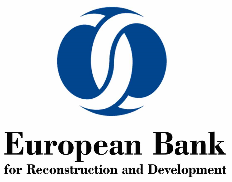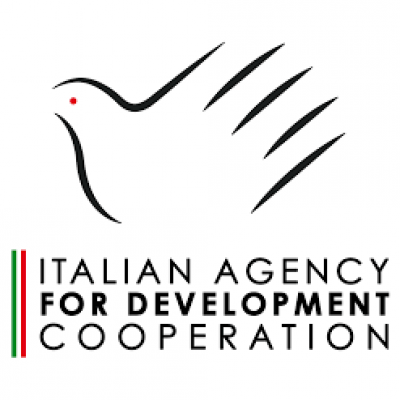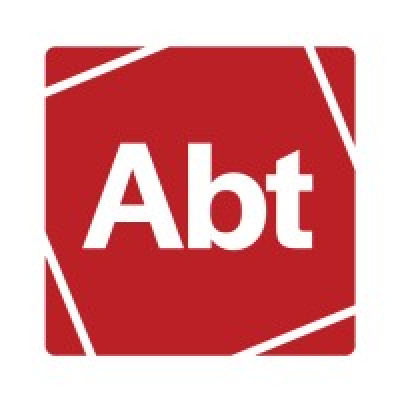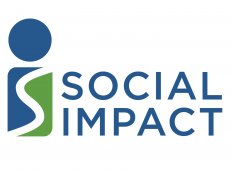Details
Description
Background
The ‘Skills Development for Employment (SD4E) programme – consolidation phase’ is supporting the Government of Albania in the national VET and Employment reform through a comprehensive approach of institutional capacity building on a macro/policy level, enabling key actors (MFE, NES/NAES and NAVETQ) to deliver coordinated and demand-driven services. Responding to national priorities and the objectives of the National Employment and Skills Strategy, this Swiss funded intervention has the ambition to make a systemic contribution where the Albanian VET system and Employment Service supply the labour market with a skilled workforce that contributes to sustainable and inclusive economic development of the country.
To achieve the programme purpose and finally the programme goal, the programme focused its efforts in three strategic fields that aim to improve the governance and quality of service provision in VET and employment promotion in Albania.
Outcome 1: The institutional capacity of key actors in VET and Employment (Ministry, NAVETQ, NAES) is strengthened
Outcome 2: The employment service portfolio is based on a balanced demand-and supply-side oriented approach
Outcome 3: A standardized Quality Assurance (QA) framework is in place that improves the image of VET and fosters linkages between school and world of work.
The project, financed by the Swiss Agency for Development and Coordination (SDC) is implemented by UNDP in partnership with the Ministry of Finance and Economics, through a participatory and consultative approach of development cooperation, fostering the sustainable development of national capacities. At the core of the intervention is the ambition to strength national key institutions in VET and Employment Promotion, through multilayer capacity building plans, the introduction of multiplier training elements, the collaborative development and roll-out of effective instruments for service delivery and innovative tools for Quality Assurance of day-to-day policy implementation.
The SD4E programme aims to support the National Agency for Employment and Skills (NAES) in optimizing its EPPs portfolio and provision, as set out in the objectives of the National Employment and Skills Strategy. The NAES aims to develop and deliver a service portfolio that is based on a balanced demand and supply oriented approach, recognizing and fostering the potential of various groups of job seekers through tailored action plans and mediation measures.
After a thorough review of the Employment Promotion Programmes (EPP) in 2019, in terms of the degree to which they addressed the needs of the client base of NAES and the implementation procedures, in 2020, the SD4E team worked together with the working group of MoFE and NAES to finalize the legal and operational framework for the implementation of the reformed EPP packages. The five programmes proposed and approved by the Council of Ministers in 2020 are:
On-the-job Training, which targets jobseekers who do not have any qualifications, and trains them at the workplace, providing a subsidy for the duration of 4 months period for all types of professions, based on an approved training plan, and supervised by a trainer of the employer; (DCM approved)
Wage-subsidy, which is a one-year subsidized employment contract, where the needs of the jobseekers are matched to the profile of the employers, the wage is defined based on the market salary rate, and the duration of the subsidy is defined based on the vulnerabilities of the jobseeker. (DCM approved)
Internship programme, which ensures quick transition to the labour market of the recent graduates, in the same of similar area of study of recent graduates, for a duration of 6 months. (DCM approved)
Self-Employment Programme, which is a start your business programmes that provides financial grant and support for unemployed jobseekers, who have a proven, viable and marketable business idea and plan; (DCM approved)
Community employment, which is a programme with a clear focus on workforce training and is designed to place the work experience offered near the labour market, and in line with the local employment opportunities, implemented in partnership with community and NGO/voluntary organizations. (DCM approved – implementation not started)
The SD4E has provided support to NAES to draft all the necessary operational guidelines and forms which will aid the implementation of these programme by the Employment Offices. During the second half of 2020, SD4E supported NAES with the implementation of these programmes.
More recently, the SD4E programme has supported the MFE to design new employment promotion programmes which target those who have recently become unemployed due to the COVID-19 crises.
This assignment relates to the review of the implementation process and approach of the reformed EPPs portfolio, in close consultation with all the internal implementation structures of NAES, the employers, the jobseekers, and non-public bodies who represent vulnerable groups of unemployed jobseekers. The review is expected to provide evidence-based information that is credible, reliable and useful for the On-the-job training, Wage Subsidy, Internship programmes and the programmes which target the recently laid-off workforce due to COVID-19, namely, DCM nr. 17 and DCM nr. 608.
The scope of this evaluation will include an examination of the process, i.e. the way the EPP was implemented and the main focus will be to review operational and implementation issues to answer the following questions: Are the programmes implemented as per the guidelines? And Are there better ways of approaching the implementation issues. The evaluation will try to identify conceptual and operational bottlenecks and weaknesses and make recommendations for improved performance. The process review will also determine whether the EPPs were implemented as designed, assess implementation and suggest amendment.
The process evaluation will focus on the following main areas: 1. Eligibility criteria and targeting efficiency for both employers and unemployed jobseekers; 2. Type and level of financing; 3. Information and application procedures 4. Matching and approval procedures; 5. Financing procedures; 6. Monitoring procedures. During the evaluation process, the consultant is expected to conduct desk review, in-depth interviews with the main stakeholders and quick surveys with the beneficiaries of the programmes (employers and jobseekers)
In relation to this assignment, under the guidance of the Programme Specialist and the Programme Coordinator, the consultant is expected to carry out the following tasks:
Desk-review of the regulatory and operational framework which guides the implementation of the EPPs in Albania: The Decisions of the Council of Ministers, the approved operational guidelines etc.
Draft and present the methodology for conducing the process evaluation, identifying all the relevant stakeholders to be involved and the tools to be used for collecting the necessary information.
Organize meetings and quick surveys with all the relevant stakeholders, including the staff of the employment offices, regional structure of NAES, the relevant department in the headquarters of NAES, employers, jobseekers, organizations that represent vulnerable groups of jobseekers etc.
Draft the initial process evaluation report, which will include the following: methodology, evaluation findings and recommendations.
Present the initial finding to the working group of Ministry of Finance and Economy and the National Agency for Employment and Skills.
Finalize and submit the report based on the comments received by the relevant institutions.
Duties and Responsibilities
Deliverables
No.
Deliverable
Description
Timing
1.
Process Evaluation methodology
Draft and present the methodology for conducing the process evaluation, identifying all the relevant stakeholders to be involved and the tools to be used for collecting the necessary information
1 week after signing the contract
2.
Presentation of the initial findings and draft report
Workshop to present the initial findings of the evaluation
6 weeks after signing the contract
3.
Final report
Revised report with audit trail detailing how all the received comments have / have not been addressed in the final report
20th of November 2022
Competencies
Core Values
Integrity:
Demonstrate consistency in upholding and promoting the values of UN in actions and decisions, in line with the UN Code of Conduct.
Professionalism:
Demonstrate professional competence and expert knowledge of the pertinent substantive areas of work.
Cultural sensitivity and respect for diversity:
Demonstrate an appreciation of the multicultural nature of the organization and the diversity of its staff;
Additionally, the individual should have an international outlook, appreciating difference in values and learning from cultural diversity.
Core Competencies:
Communication:
Facilitate and encourage open communication and strive for effective communication.
Planning & Organizing:
Develops clear goals in line with agreed strategies, identifies priorities, foresees risks and makes allowances accordingly.
Organizational Awareness:
Demonstrate corporate knowledge and sound judgment.
Teamwork:
Demonstrate ability to work in a multicultural, multi-ethnic environment and to maintain effective working relations with people of different national and cultural backgrounds.
Accountability:
Takes ownership of all responsibilities and delivers outputs in accordance with agreed time, cost and quality standards.
Functional Competencies:
Strong analytical and M&E skills;
Demonstrates leadership, team building and coordinating skills;
Plans and produces quality results to meet established goals;
Generates innovative, practical solutions to challenging situations;
Conceptualizes and analyzes problems to identify key issues, underlying problems, and how they relate;
Demonstrates substantive and technical knowledge to meet responsibilities and post requirements with excellence;
Demonstrates strong oral and written communication skills;
Demonstrates openness to change and ability to manage complexities;
Responds positively to critical feedback and differing points of view.
Required Skills and Experience
Post-graduate degree in social sciences, international relations, political science, evaluation, international development or a related subject.
Work experience
At least 5 years of working experience in policy design, implementation and evaluation;
Substantial technical knowledge on monitoring and evaluation of programmes implemented by government or non-government bodies;
Prior experience in employment / skills development related programmes;
Excellent communication and report-writing skills in English
Evaluation Procedure
UNDP applies a fair and transparent selection process that would take into account both the technical qualification of Individual Consultants as well as their financial proposals. The contract will be awarded to the candidate whose offer:
Is deemed technically responsive / compliant / acceptable (only technically responsive applications / candidates will be considered for the financial evaluation)
And has obtained the highest combined technical and financial scores.
Technical Criteria - 70% of total evaluation – max points: 70
Criteria A: Substantial technical knowledge on monitoring and evaluation of programmes implemented by government or non-government bodies – max points: 20
Criteria B: Educational background– max points: 10
Criteria C: At least 5 years of working experience in policy design, implementation and evaluation – max points: 10
Criteria D: Prior experience in employment / skills development related programmes; - Max points: 10
Criteria E: Technical Proposal – max 20 points
Financial Criteria - 30% of total evaluation – max points: 30





